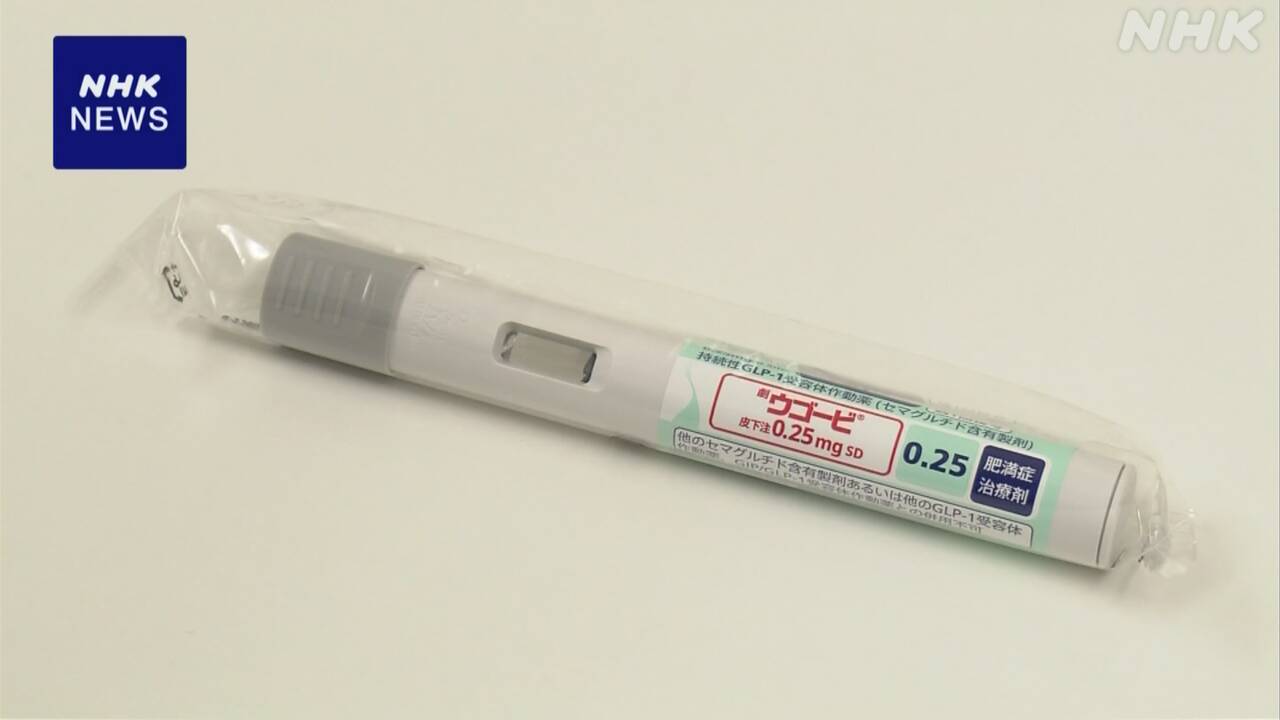GLP-1 receptor agonist, a new obesity treatment developed by a Danish pharmaceutical company, went on sale in Japan on the 22nd, and medical institutions have begun prescribing it to patients.
There are concerns about this drug being used for cosmetic purposes, and the doctor who prescribed it said, ``There is a risk of side effects, so careful administration is necessary.''
``Ugobi,'' developed by a Danish pharmaceutical company, is a drug called a ``GLP-1 receptor agonist'' and was approved by the government last year as a treatment for obesity, and will go on sale in Japan from the 22nd. It began.
On the 22nd, at Chiba University Hospital, which has an ``obesity outpatient clinic'', a specialist doctor examined a female patient in her 60s and prescribed the drug.
The woman needed to inject the medicine into her stomach by herself, and after administering the injection under the guidance of a nurse, the woman was instructed by her doctor to continue exercising and improving her diet.
In order for this drug to be covered by insurance, you must have been diagnosed with obesity and have symptoms such as high blood pressure.
On the other hand, as diabetes drugs with similar ingredients are increasingly being used for cosmetic purposes, the Ministry of Health, Labor and Welfare and other organizations have established guidelines for this drug and are calling for its use for purposes other than obesity treatment. I am.
Kei Ono, head of the Department of Diabetes, Metabolism, and Endocrinology at Chiba University Hospital, said, ``This drug has been long awaited for the treatment of patients with severe obesity, but if it is administered too easily for cosmetic purposes, it may cause side effects such as a drop in blood pressure. "There is a risk. Careful prescription is necessary."
Ministry of Health, Labor and Welfare and academic societies ``Do not administer for purposes such as dieting''
Ugobi, a new obesity treatment, is a GLP-1 receptor agonist, a nationally approved diabetes treatment that has been increased in dosage and applied to obesity.
It has the ability to suppress appetite, and in the United States, which is known as the ``obesity country'', the FDA (Food and Drug Administration) has announced that there is a shortage of supply, and the supply is not keeping up with the increasing global demand.
GLP-1 receptor agonist, a diabetes treatment drug with the same ingredient, is being used inappropriately for beauty and dieting purposes in Japan, and the Japan Medical Association and other organizations are warning that the drug will not reach diabetic patients who need it. , has been calling it a problem as there have been a number of cases where side effects have been inadequately explained, leading to poor health.
For this reason, the Ministry of Health, Labor and Welfare, the Japan Obesity Society, and other organizations have announced that ``Ugobi'' is a new target for obesity and may be used by more patients. For the first time, we have published guidelines for medical institutions and pharmacies for ``Synthetic Drugs''.
This includes clear conditions for obese patients who are eligible for the drug, and conditions for medical institutions that can administer the drug, including having a specialist from the Japan Obesity Society.
It also states that ``the drug must not be administered for purposes such as dieting,'' and calls for a system to be put in place to take appropriate measures against side effects.

